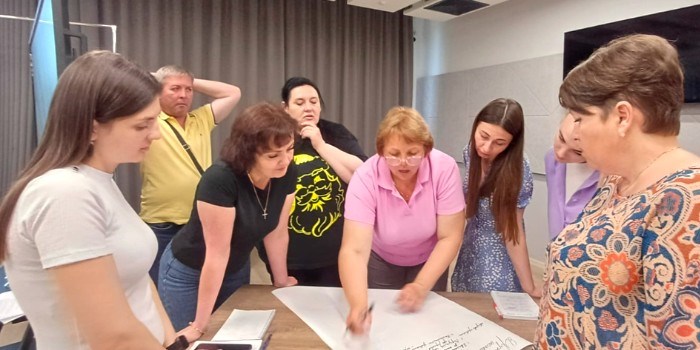MOOSE JAW — Saskatchewan Polytechnic is launching a $2-million, five-year initiative to support the reintegration of female veterans in Ukraine, funded by Global Affairs Canada.
The project, dubbed the Women Veteran Reintegration in Ukraine Project (WVRUP), will provide employment programs, entrepreneurship training, and psychosocial support to female veterans transitioning back to civilian life.
The announcement came during the 34th anniversary celebrations of Ukrainian independence. WVRUP will be delivered in collaboration with Ukraine’s Women’s Information Consultative Centre, the Ministry of Veteran Affairs, and the State Economic Service.
“We are honoured to support the Government of Ukraine in empowering the lives of their women veterans during this pivotal time,” said Dr. Larry Rosia, president and CEO of Sask Polytech.
The number of women serving in Ukraine’s armed forces has increased 15-fold over the past decade, now surpassing 70,000. Many face considerable hurdles in resuming civilian life, such as reduced income, scant job opportunities, and barriers to starting businesses.
WVRUP will focus on regions with high concentrations of veteran populations, including Kyiv, Dnipro, and Vinnytsia. It aims to reach 30,000 women veterans, benefit 6,000 family members, engage more than 60 master trainers, and roll out six new or improved training programs in high-demand sectors by 2028.
Sask Polytech will oversee instructor training, educational materials, trainer handbooks, and assessment tools centred on skills and entrepreneurship. Ukrainian trainers will be equipped to deliver services and advocate for gender-sensitive reforms.
The polytechnic will also assist in formulating policies that promote advocacy and dialogue for female military veterans.
“Sask Polytech has worked in Ukraine since 2016 and this project builds on a foundation of meaningful partnerships and mutual learning,” said Angela Wojcichowsky, director of international projects at Sask Polytech. “We believe in the resilience of Ukraine’s women veterans and their potential to lead in rebuilding their communities.”
Back at home, Ukrainian immigrants have been an integral part of Saskatchewan’s history since first arriving in the late 1800s. They helped establish farms, schools, and churches across the province and represent one of its largest ethnic communities. By 1921, more than 28,000 Ukrainians were living in the province, and today about 12.57 per cent of Saskatchewan residents trace their heritage back to Ukraine.
Sask Polytech brings over 30 years of international education experience, including system-level reform projects in countries such as Ukraine, Jordan, and Vietnam, and local-level efforts in Ghana, Kenya, Malawi, Colombia, Yemen, Slovakia, and the Kyrgyz Republic.
To learn more about the institution’s international development projects, visit SaskPolytech.ca.




